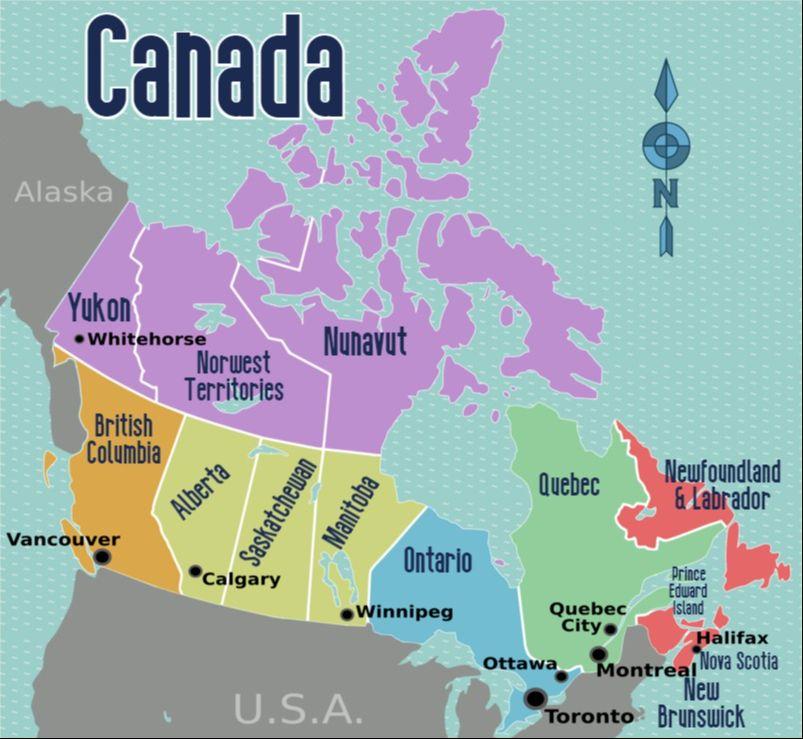Canada’s Digital Services Tax remains Firm Amid Global Agreement
Canada has reaffirmed its commitment to maintaining its Digital Services Tax (DST), even as major economies work towards a unified global taxation framework. Prime Minister Justin Trudeau’s administration has emphasized that the current digital tax, introduced in 2021, aligns with the country’s obligations to support fair taxation in the digital economy. Despite the G-7 nations reaching a deal to establish a more standardized international tax regime, ottawa remains steadfast in its approach, viewing the DST as a critical tool in addressing the disparities faced by local businesses competing with multinational tech giants.
The DST, which imposes a tax on revenues generated by large digital companies operating within Canada, is designed to ensure these firms contribute fairly to the Canadian economy.The government has highlighted several reasons for retaining this tax, including:
- Ensuring fairness: By taxing digital giants, Canada levels the playing field for homegrown companies.
- Boosting local revenues: The DST generates notable revenue, which is vital for funding public services.
- Encouraging compliance: It incentivizes global firms to follow local regulations and contribute to community growth.
As international negotiations continue, it remains to be seen how this decision will impact Canada’s standing in global economic discussions. However, for now, the government is committed to defending its interim measures, setting an example for other nations navigating the complexities of taxing the digital economy.

Implications for Canadian Businesses in a Global Digital Economy
The continuation of Canada’s Digital Services Tax (DST) amidst a broader G-7 agreement brings significant implications for Canadian businesses navigating the complexities of a global digital economy. companies that rely heavily on digital advertising and other online services may see increased compliance costs, as they will need to adjust their financial strategies to accommodate the additional tax burden. This may lead to a re-evaluation of pricing models and operational efficiencies, as firms assess how to absorb or pass on these costs to consumers.
Moreover, businesses will need to stay agile as international counterparts adapt to similar tax frameworks. The key implications for Canadian enterprises include:
- Strategic reassessment of foreign operations: Companies may need to consider relocating certain operations or resources to minimize exposure to the DST.
- Increased investment in compliance: Navigating the complexities of the DST will necessitate more robust legal and financial advisory engagements.
- Focus on innovation and adaptation: Canadian businesses might pivot to new revenue streams that could help mitigate the impact of the tax while enhancing competitiveness on the global stage.
as the landscape evolves, adept planning and strategic foresight will be paramount for Canadian businesses aiming to thrive in an increasingly interconnected and regulated digital marketplace.

Navigating Compliance: Strategies for Companies Affected by the Tax
With the recent decision to keep Canada’s Digital Services Tax (DST) intact, companies operating in the digital landscape must recalibrate their compliance strategies. Given the complex nature of this tax, organizations are advised to adopt a robust approach to ensure adherence. Key strategies include:
- Thorough Understanding of Tax Obligations: Companies need to stay informed about the specific provisions of the DST, including the revenue thresholds and applicable digital services.
- regular Audits: Conducting routine internal audits can definitely help identify potential gaps in compliance and address them before they escalate into more significant issues.
- Consultation with Tax experts: Engaging with tax advisors who specialize in international digital taxation can provide valuable insights and help navigate the intricacies of the law.
Additionally, it’s imperative for businesses to enhance their reporting procedures to streamline the process of tax calculation and submission. A few effective practices include:
- Implementing Advanced Technology Solutions: Leveraging software specifically designed for tax compliance can minimize errors and improve efficiency in reporting.
- Training Employees: Regular training sessions for finance and compliance teams will ensure everyone is well-versed in the current tax regulations and changes.
- Stakeholder Communication: Keeping open lines of communication with stakeholders informs them of the tax implications and secures their buy-in for compliance initiatives.

Future Outlook: Potential Revisions and International Reactions
The persistence of Canada’s Digital Services Tax (DST) has already sparked discussions on potential revisions,especially in light of the recent G-7 agreement aimed at addressing global tax disparities.Officials in Canada may consider the following factors in revising the tax framework:
- Global compliance Standards: Alignment with international standards to ensure that the tax does not hinder cross-border trade.
- Tax Rate adjustments: Evaluating the current rates to harmonize with changes proposed by G-7 leaders, which could influence the competitive landscape.
- Exemptions and Thresholds: Determining whether specific sectors or revenue thresholds should be adjusted to accommodate growing digital market dynamics.
International reactions to Canada’s determination to maintain the DST post-G-7 deal have varied substantially, with some allies expressing support for the initiative while others voice concern over unilateral action. Countries such as:
- France: Have praised Canada’s stance as a necessary step for digital equity.
- The United States: Continues to express apprehension, indicating that such measures might lead to trade tensions.
- germany: Is likely to explore similar policies,reflecting the ongoing debate within the EU regarding digital taxation.
As Canada navigates the complexities of its tax policy in this evolving landscape,the country will have to balance domestic interests with international expectations to maintain healthy trade relationships while ensuring that the digital economy’s giants contribute their fair share.
